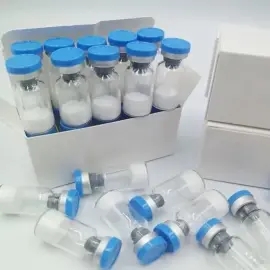-
Categories
-
Pharmaceutical Intermediates
-
Active Pharmaceutical Ingredients
-
Food Additives
- Industrial Coatings
- Agrochemicals
- Dyes and Pigments
- Surfactant
- Flavors and Fragrances
- Chemical Reagents
- Catalyst and Auxiliary
- Natural Products
- Inorganic Chemistry
-
Organic Chemistry
-
Biochemical Engineering
- Analytical Chemistry
- Cosmetic Ingredient
-
Pharmaceutical Intermediates
Promotion
ECHEMI Mall
Wholesale
Weekly Price
Exhibition
News
-
Trade Service
Asasin Pharmaceutical Apoptosis Inhibitors Received 2 more FDA Orphan Drug Certified Pharmaceutical Rubik's Cubes Source: Pharmaceutical Rubik's Cube 10-09 Until October 9, Asasin Pharmaceuticals announced that the FDA has awarded its MDM2-p53 inhibitors APG-115, Bcl-2/Bcl-xL inhibitor APG-1252 are two orphan drug qualifications for the treatment of acute myeloid leukemia (AML) and small cell lung cancer (SCLC).
, as of now, assassin Pharmaceuticals has obtained 6 FDA orphan drug certifications in the research of new drugs.
also known as "orphan medicine", refers to the use of drugs for the prevention, treatment, diagnosis of rare diseases.
, rare diseases are those that affect fewer than 200,000 people.
since 1983, the United States has adopted the Orphan Drugs Act to provide policy support to businesses to encourage the development of drugs for rare diseases.
's FDA-granted orphan drug eligibility will help the drug enjoy some policy support in the U.S. in terms of follow-up research and development and commercialization, including tax breaks on clinical trial costs, exemption from NDA filing fees, and access to research and development grants, especially if the drug is approved for seven years of exclusive ownership of the U.S. market.
APG-115 treatment amLAML is a highly heterogeneic heterogeneity of the blood system malignancies, and is mainly a disease of elderly patients, the medium age at the time of diagnosis is 68 years old.
19940 new AML cases are expected to occur in the U.S. by 2020, with 11,180 expected to die from the disease, according to the latest National Cancer Institute's SEER and End Results Program.
although some progress has been made in the treatment of AML in recent years, the five-year survival rate of the disease is 25%-30%, and there are still large and unsolt clinical needs.
APG-115 is an oral, highly selective small molecule MDM2 inhibitor in the study of Aachen Pharmaceuticals, which has a high binding affinity for MDM2 and restores p53 tumor inhibition activity by blocking the interaction of MDM2-p53.
APG-115 is the first MDM2-p53 inhibitor to enter clinical phase in China and has conducted several clinical studies in China and the United States to treat solid and blood tumors.
APG-1252 to treat SCLC lung cancer is the leading cause of cancer-related death in the United States.
lung cancer can be divided into two main categories by histopathological credit type, namely non-small cell lung cancer (NSCLC) and SCLC, of which about 13%-15% are classified as SCLC.
SCLC is a rare and invasive malignant tumor with a low survival rate of 5 years3.
treatment options are few, especially for patients with relapsed/resoccic SCLC, and the effectiveness of all treatment methods is limited.
high-efficiency small molecule drug developed by APG-1252 for AXA Pharmaceuticals can repair apoptosis by selectively inhibiting Bcl-2 and Bcl-xL proteins.
APG-1252 is currently conducting clinical Phase I dose climbing trials in the United States and Australia for patients with advanced cancer, IB/II stage trials in the United States for patients with relapse recurring SCLC with combined yew alcohol, and single-drug Clinical Phase I dose climbing trials for SCLC patients in China.
current clinical data show that APG-1252 has good safety in SCLC and other patients with advanced solid tumors, and shows initial efficacy.
AML, SCLC and other diseases are clinical needs that are not yet fully met at the global level," said Yan Yifan, Chief Medical Officer of Assan Pharmaceuticals.
is the second FDA orphan drug qualification for APG-115 in recent days, while APG-1252 is the first time it has been eligible.
orphan drug-related policies will help us accelerate the global clinical development and product launch of these two drugs, so as to reach more patients at an early time.
"







